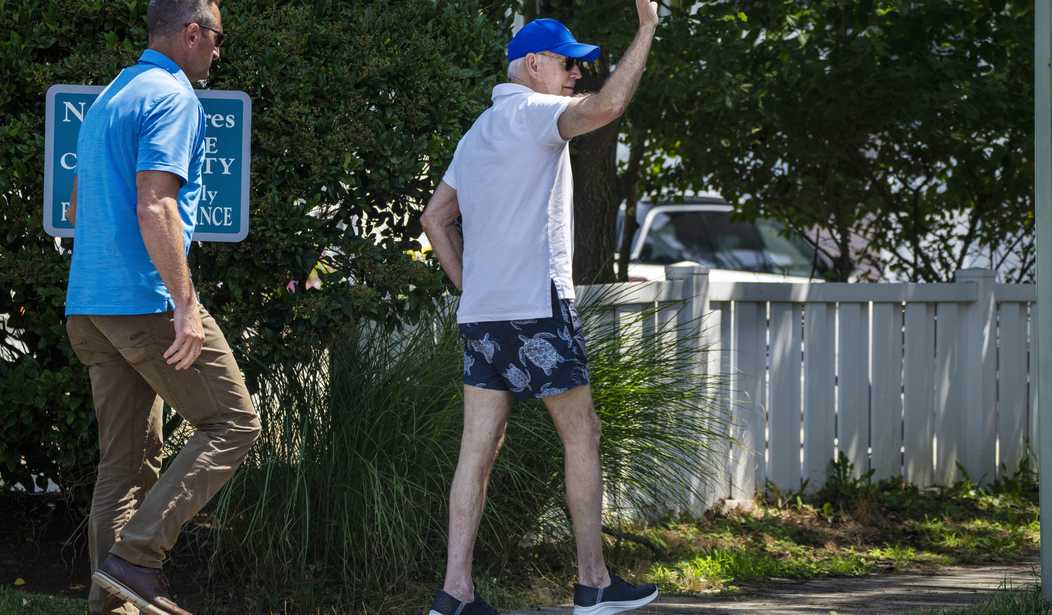The movement to destroy the Second Amendment is slow, methodical, and unrelenting. It covers everything from the news media to Hollywood, academia to the medical community, government branches and agencies at all levels. One aspect of that is the financial industry, wherein the push for a separate Merchant Category Code (MCC) for firearms retailers is the first baby step toward the creation of a gun owners registry. It may take decades, but none of that “progress” can happen without this first step.
The push for a dedicated MCC was started last year by the left-wing activist Amalgamated Bank, which “partnered” with “issue experts” at Guns Down America and Giffords Law Center. Ryan, Tom, Cam and I have covered MCCs in several articles before.
That activist bank appears to be in a financial tight spot. The Wall Street Journal’s Jonathan Weil reports (archived):
Unions Park Their Cash at This Bank. Will They Stick Around?
Amalgamated has big paper losses and a large number of uninsured depositsAmalgamated Financial calls itself America’s socially responsible bank. Its biggest shareholder is a labor union, and its customers include nonprofits, unions and political campaigns. It classifies about half of its deposits as “super core” because they come from customers who have been with the bank for an average of 17 years.
The New York-based bank stands out for other reasons: Few U.S. lenders have seen the market values of their assets hit harder by rising interest rates, and most of its deposits weren’t covered by federal deposit insurance.
The unrealized losses don’t put Amalgamated under financial stress, as long as it can continue holding the assets and doesn’t have to sell at a loss. Loan defaults haven’t been a problem for the bank, and deposits have held steady. Its stock price is down 26% this year, in line with declines at other small banks.
[…]
Higher rates set off a banking crisis in March, leading to the failures of Silicon Valley Bank and First Republic Bank, which had large unrealized losses on their assets that didn’t count on their balance sheets.
Amalgamated in its most recent quarterly report said the market value of its bonds was about $129 million less than their balance-sheet value as of March 31, while the market value of its loans was about $387 million less. The combined total of $517 million nearly matched its $519 million of total equity, or assets minus liabilities.
Just a handful of banks have disclosed losses of that scale relative to their net worth. Amalgamated is also unusual because 62% of its deposits were uninsured at the end of the first quarter, a relatively high percentage for the industry.
Clearly there are some major issues. The WSJ report continues:
While nearly every U.S. bank had unrealized losses on its bonds and loans, just a handful of mostly small lenders were hit as hard as Amalgamated. At Citizens Holding of Philadelphia, Miss., which has 27 branches, unrealized losses on loans and held-to-maturity bonds were equivalent to 161% of equity as of March 31. At two Hawaiian banks, Bank of Hawaii and Central Pacific Financial, they were 113% and 101%, respectively.
These other banks weren’t as exposed to uninsured deposits as Amalgamated. The risk is that depositors get worried the bank won’t have enough cash to pay them off and they rush to withdraw their money. That is what brought down Silicon Valley Bank. After it failed, regulators guaranteed its uninsured deposits to prevent more bank runs.
The percentage of uninsured deposits is high, but its customer base is also unique. The risk of a bank run is on the lower side because these customers may not be the type who stampede for the exits.
Founded in 1923 by the Amalgamated Clothing Workers of America, Amalgamated is 41%-owned by the labor union Workers United and related parties. It markets to customers with shared values on social, economic and environmental issues. Customers include the Biden-Harris re-election campaign, which lists Amalgamated in federal disclosures as its sole bank. A campaign spokesman declined to comment.
This is where the rub is. Even if the socially responsible, financially questionable activist bank starts going belly up, there’s an important customer who keeps all its money in that bank: the Biden-Harris re-election campaign. As much as I’d like the schadenfreude of the collapse of an activist bank that’s colluding with gun control groups to destroy the Bill of Rights, I’m fully expecting a bailout if they run into serious trouble like Silicon Valley Bank and First Republic Bank. Such are the times we live in.









Join the conversation as a VIP Member